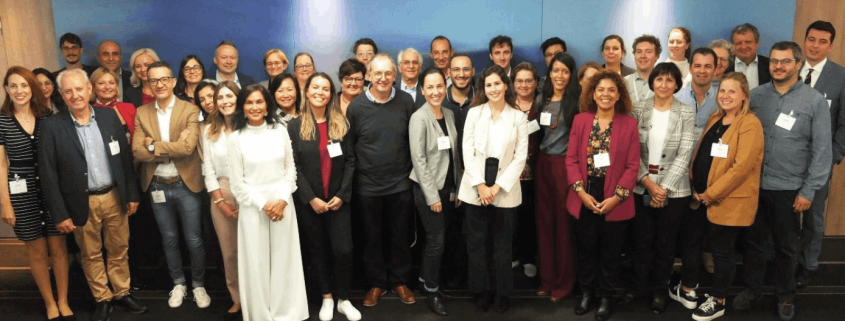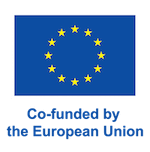The Joint Action “Strengthening eHealth including telemedicine and remote monitoring for health care systems for cancer prevention and care” (eCAN) has been presented at the Pullman Hotel of Brussels between the 20th and the 21st of September. The event paved the way for the eCAN project, framed within the EU4Health Programme and that will be running until the end of 2024.
Coordinated by Sciensano (the Belgian institute for health), eCAN aims to provide a framework of recommendations for the integration of telemedicine and remote monitoring in health care systems. The objective is to reduce cancer care inequalities across the European Union and to help Member States to become pandemic proof, particularly for cross-border health emergencies and crisis, such as COVID-19.
During the kick-off meeting, the head coordinator of the eCAN, Marc Van den Bulcke, has highlighted how the coronavirus epidemic has shown that telemedicine and remote monitoring have the potential to consolidate as regular health care practices, raising new opportunities for patients and health care providers, as well as new questions.
Since March 2020, European institutions have demonstrated that it is possible to develop apps related to health care that work in all EU countries. One example is CovidSafe app, used for saving COVID certificates. Designed for other purposes, technological tools might become ideal for helping cancer survivors to get psychological and emotional support, information about where and how to get resources, and so on and so forth.
eCAN will enrich the EU Health Data Space
A total of 16 EU countries are involved in the eCAN project; besides them, the kick-off meeting brought together a large number of actors interested in the applications of eHealth in a disease that registers, in the EU, 2.7 million new cases every year. Among the attendees, there were European Commission representatives, health ministers, international policymakers, organisations, entities and stakeholders.
The leader of the European Beating Cancer Plan (EBCP), Matthias Schuppe, was one of the keynote speakers that participated at the first eCAN event. He has pointed out that launching this kind of initiatives will help states to better tackle future pandemics and the impact these critical situations have for patients.
Apart from those benefits, eCAN will also contribute to enrich the EU Health Data Space. In this regard, the past president and chair scientific committee of the European Cancer Patient Coalition (ECPC), Kathi Apostolidis, has said that this European data space will enable cancer patients to secure their data in an integrated format, and share it with health providers across EU borders. However, digital health literacy, equipment and facilities must be available for all EU member states in order to achieve an appropriate EU Health Data Space and the drop of cancer care inequalities among countries.
The tasks of eCAN
On the other hand, the leader entities of every work package have introduced the tasks that have been assigned to them as well as the road map to carry them out and the difficulties and challenges that these will entail.
Sciensano will lead the coordination work area. Likewise, the Catalan Institute of Oncology (ICO), located in Spain, will be in charge of the communication of eCAN. Maria Skłodowska-Curie Institute of Oncology (in Poland) will assume the third package tasks (monitoring and evaluation), and the Austrian National Public Health Institute (GÖG) will guarantee the sustainability of the recommendations provided.
The Regina Elena National Cancer Institute (IFO-IRE), in Italy, will lead all the actions related to teleconsultation and the legal, ethical framework and cybersecurity aspects. On the other hand, the National eHealth Authority of Cyprus will be in charge of telemonitoring in cancer care. Lastly, the 3rd Regional Health Authority of Macedonia (3rd RHA) in Greece will be the entity responsible of stakeholder engagement, education and training in Members States.
In addition to the beneficiary entities that lead the eight different working areas, eCAN also counts with the participation of other affiliated entities. There is a total of 35 organisations involved in this Joint Action.
Current projections on cancer
Cancer is the second leading cause of mortality in the EU after cardiovascular disease. The prevention and control of cancer would benefit the majority of citizens since cancer shares common risk factors with other noncommunicable diseases. Across Europe, the possibility of receiving a timely cancer diagnosis and of surviving the disease differs considerably because of inequalities in preventive policies, access to state-of-the art diagnostics, treatments and experienced care.
The current projection is that, without strong action, the number of diagnosed cancer cases will increase by a fourth by 2035. Therefore, there is a need to harmonise telemedicine regulations and to explore the efficiency of teleconsultation programmes and telemonitoring in the cancer field. That is precisely the direction in which eCAN is going.
Besides, this initiative coexists with other concurrent European cancer JA. For example, PERCH intends to contribute to improve the dissemination of the HPV vaccine among European citizens, while CraNE and JANE want to establish and improve the EU Network of Comprehensive Cancer Centres and their national counterparts. All these European projects are set to be finished in 2025 at the latest.
![]() Co-funded by the European Union. Views and opinions expressed are however those of the author(s) only and do not necessarily reflect those of the European Union or HaDEA. Neither the European Union nor the granting authority can be held responsible for them.
Co-funded by the European Union. Views and opinions expressed are however those of the author(s) only and do not necessarily reflect those of the European Union or HaDEA. Neither the European Union nor the granting authority can be held responsible for them.



